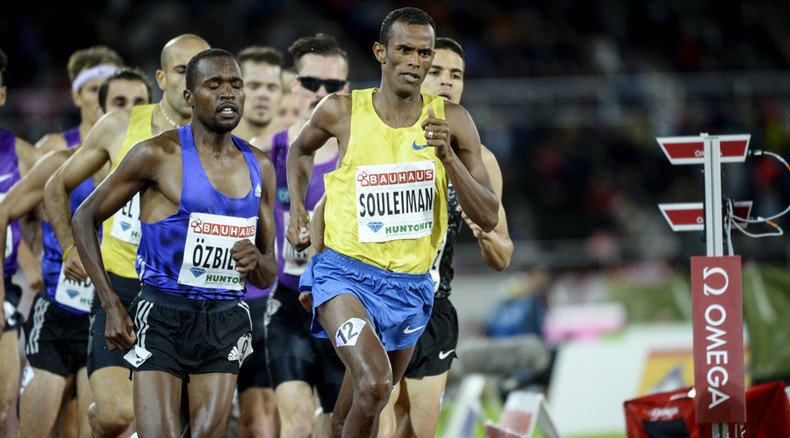Doping leak: Over 12,000 blood tests reveal scores of ‘dirty’ sporting medals

The data of over 5,000 athletes who participated in the Olympics and world championships has fallen into the hands of British and German reporters, who say that suspicious test results haven’t led to the withdrawal of medals.
According to the “biggest leak of blood-test data in sporting history,” one-third of medals won in the Olympics and World Championships between 2001 and 2012, including 55 gold medals, were suspicious.
READ MORE: Anti-doping tests come to E-sports after stimulant drug scandal
The database of the International Association of Athletics Federations (IAAF) was obtained by The Sunday Times newspaper and the German broadcaster ARD/WDR though a whistleblower, who reported that none of the cheating athletes were stripped of their medals.
“Never have I seen such an alarmingly abnormal set of blood values,” anti-doping expert Robin Parisotto told The Sunday Times. “So many athletes appear to have doped with impunity, and it is damning that the IAAF appears to have idly sat by and let this happen.”
The president of the World Anti-Doping Agency (WADA), Sir Craig Reedie, said his organization was "very disturbed by these new allegations... which will, once again, shake the foundation of clean athletes worldwide."
READ MORE: Dopey policy? Israel’s top cop calls for marijuana possession rethink
Until Friday, the IAAF was threatening the newspaper to prevent its publishing of the “IAAF’s entire blood-testing database … or at least a very substantial part of it,” which was “in unlawful possession.”
Statement on allegations related to IAAF anti-doping
http://t.co/tfxDVJISBC
— IAAF (@iaaforg) August 2, 2015Commenting on the revelation, the IAAF said in a statement that it was "aware of serious allegations made against the integrity and competence of its anti-doping programme."
It added: "The IAAF is now preparing a detailed response to both media outlets and will reserve the right to take any follow-up action necessary to protect the rights of the IAAF and its athletes.”
READ MORE: Interpol issues alert over deadly dieting pills
Earlier, the association stated that the introduction of its biological passport in 2009 has eased the systematic investigation of all “atypical” results. It said that the spending on combating cheating reaches $2 million a year, “as a percentage of overall annual budget, this is the highest of any sport.”
The Sunday Times called Russia “the blood-doping center of the world,” and claimed it was responsible for over 80 percent of the undeserved medals. Kenya, the motherland of great runners, has turned out to be another “doping hotbed,” the paper said.
“This scandal doesn’t concern Russia, it concerns the global system of athletics,” Russian Sports Minister Vitaly Mutko told TASS news agency. “The situation is difficult, but there’s no need to dramatize it.”
“Russia has taken and will take harsh measures against the cheaters. But we have to deal with the situation in a calm manner, not going to extremes because of a film,” Mutko added.
READ MORE: Beijing selected to host 2022 Winter Olympics
Athletic Kenya (AK) said in a statement: "We cannot fail to point out that the documentary is an attempt to smear our runners with unwarranted suspicion as they prepare to undertake duty for their country in Beijing, China," Reuters reported.
In two weeks’ time, the IAAF is to elect a new president, and the candidates are British Conservative politician and former athlete Lord Sebastian Coe and Ukraine’s Olympic athlete Sergey Bubka.
Following the publication, Coe said on Twitter: "In response to today's media reports, I know that the IAAF takes these allegations extremely seriously and it will issue a robust and detailed response to them and continue to work closely, as it has always done, with WADA.”












